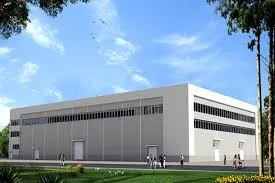- Afrikaans
- Albanian
- Amharic
- Arabic
- Armenian
- Azerbaijani
- Basque
- Belarusian
- Bengali
- Bosnian
- Bulgarian
- Catalan
- Cebuano
- Corsican
- Croatian
- Czech
- Danish
- Dutch
- English
- Esperanto
- Estonian
- Finnish
- French
- Frisian
- Galician
- Georgian
- German
- Greek
- Gujarati
- Haitian Creole
- hausa
- hawaiian
- Hebrew
- Hindi
- Miao
- Hungarian
- Icelandic
- igbo
- Indonesian
- irish
- Italian
- Japanese
- Javanese
- Kannada
- kazakh
- Khmer
- Rwandese
- Korean
- Kurdish
- Kyrgyz
- Lao
- Latin
- Latvian
- Lithuanian
- Luxembourgish
- Macedonian
- Malgashi
- Malay
- Malayalam
- Maltese
- Maori
- Marathi
- Mongolian
- Myanmar
- Nepali
- Norwegian
- Norwegian
- Occitan
- Pashto
- Persian
- Polish
- Portuguese
- Punjabi
- Romanian
- Russian
- Samoan
- Scottish Gaelic
- Serbian
- Sesotho
- Shona
- Sindhi
- Sinhala
- Slovak
- Slovenian
- Somali
- Spanish
- Sundanese
- Swahili
- Swedish
- Tagalog
- Tajik
- Tamil
- Tatar
- Telugu
- Thai
- Turkish
- Turkmen
- Ukrainian
- Urdu
- Uighur
- Uzbek
- Vietnamese
- Welsh
- Bantu
- Yiddish
- Yoruba
- Zulu
Nov . 06, 2024 21:48 Back to list
The Rise of Prefabricated Agricultural Buildings
In recent years, the agricultural sector has witnessed significant transformation driven by technological advancements and innovation. One of the standout trends is the increasing adoption of prefabricated agricultural buildings. These structures, designed and constructed off-site before being transported and assembled on agricultural land, have gained substantial popularity among farmers and agribusinesses due to their numerous advantages.
Cost-Effectiveness
One of the primary reasons for the rise in prefabricated agricultural buildings is their cost-effectiveness. Traditional construction methods can be exorbitantly expensive, often requiring extensive labor and materials sourced from multiple suppliers. Prefabricated buildings streamline this process. By manufacturing components in a factory setting, builders can take advantage of economies of scale, reducing material waste and lowering labor costs. As a result, farmers can obtain high-quality buildings without breaking the bank, allowing them to reallocate resources to other vital areas of their operations.
Speed of Construction
Time is money in agriculture, and farmers cannot afford to wait long for facilities to be built. Prefabricated agricultural buildings can be assembled much faster than traditional structures. Since many components are manufactured simultaneously, construction timelines are significantly reduced. For instance, a prefabricated barn can often be erected in a matter of days, as opposed to weeks or even months for conventional buildings. This rapid deployment allows farmers to quickly address their needs, whether it be for livestock housing, storage, or processing facilities, enhancing their overall productivity.
Customization and Versatility
prefab agricultural buildings

Another compelling aspect of prefabricated buildings is their versatility. They can be tailored to meet specific agricultural requirements, accommodating everything from dairy barns and chicken coops to machinery storage and farm offices. Modern prefabrication techniques allow for various designs and sizes, ensuring that the resulting structures fulfill the unique demands of different farming operations. Furthermore, as stakes in the agricultural sector evolve, prefabricated buildings can be easily modified or expanded, providing farmers with the flexibility to adapt to changing conditions.
Sustainability
With rising concerns about environmental sustainability, prefabricated agricultural buildings also present ecological advantages. Many manufacturers are focusing on sustainable materials and energy-efficient designs. These structures often incorporate features such as natural ventilation, solar panels, and rainwater harvesting systems, significantly reducing their carbon footprint. Additionally, the reduced construction waste associated with prefabrication contributes to more sustainable agricultural practices, allowing farmers to engage in environmentally friendly operations.
Durability and Maintenance
Prefabricated agricultural buildings are manufactured to withstand the rigors of agricultural life, reinforcing their durability. High-quality materials are used, ensuring these structures can endure adverse weather conditions and remain functional for years. Moreover, minimal maintenance is required, allowing farmers to focus on their core operations instead of frequently repairing or replacing buildings. This long-term resilience is critical in maintaining the effectiveness and efficiency of agricultural practices.
Conclusion
Overall, the emergence of prefabricated agricultural buildings has transformed the landscape of farming infrastructure. From cost savings and rapid construction to customization options and sustainability benefits, these structures offer compelling advantages that align with the needs of modern agriculture. As the sector continues to evolve, it is likely that the popularity of prefabricated solutions will only grow, paving the way for more efficient, eco-friendly, and resilient farming practices. The future of agriculture is not just in the fields; it’s also in the smart, innovative buildings that support it.
-
How Do Prefabricated Steel Structures Transform Modern Construction?
NewsJul.14,2025
-
How Do Prefabricated Metal Buildings Redefine Modern Construction?
NewsJul.14,2025
-
How Do Prefab Insulated Metal Buildings and Steel Structures Revolutionize Modern Construction?
NewsJul.14,2025
-
How Do Pre - Engineered Steel Structures Redefine Modern Construction?
NewsJul.14,2025
-
Advancing Modular Construction with Prefabricated Metal Structures
NewsJul.14,2025
-
Advancing Industrial Infrastructure with Prefabricated Steel Solutions
NewsJul.14,2025
Products categories
Our Latest News
We have a professional design team and an excellent production and construction team.












